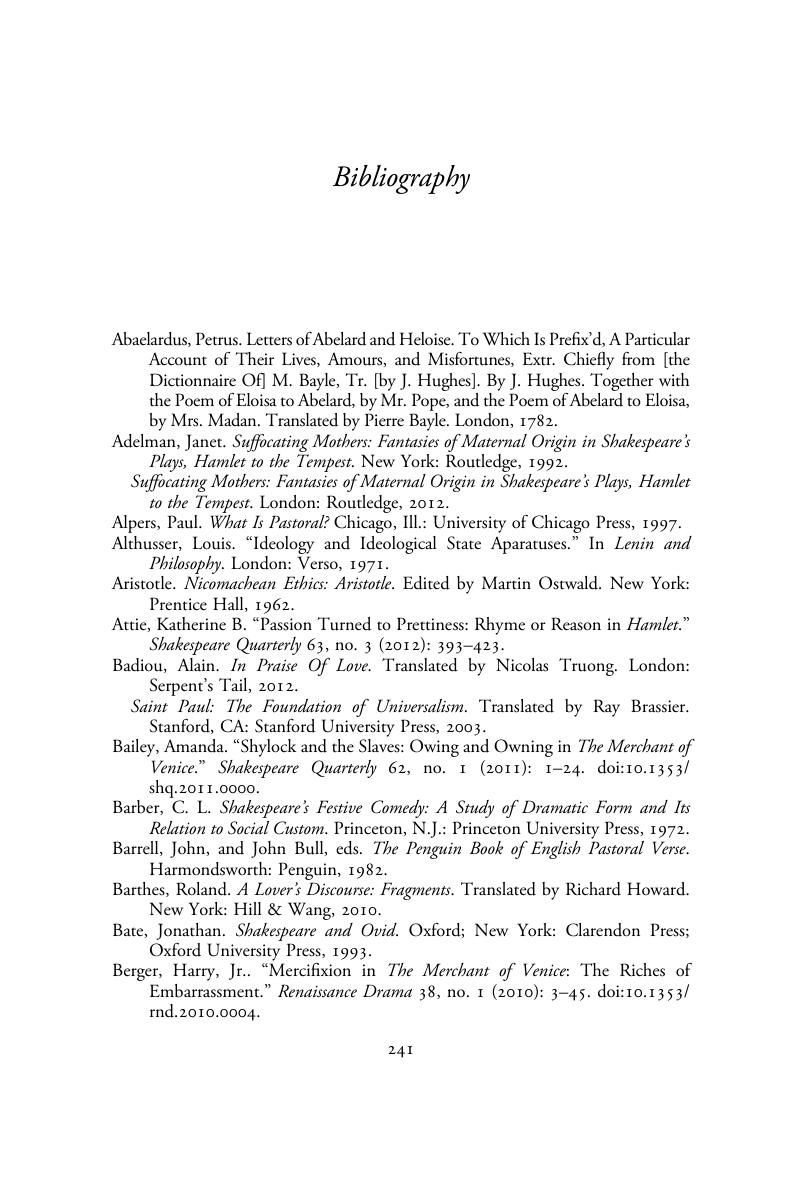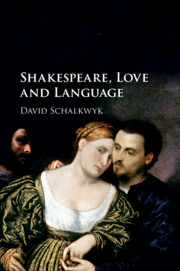Book contents
- Shakespeare, Love and Language
- Shakespeare, Love and Language
- Copyright page
- Dedication
- Contents
- Acknowledgements
- Introduction
- Chapter 1 Shaping Fantasies
- Chapter 2 Love’s Troubled Consummations
- Chapter 3 The Impossible Gift of Love
- Chapter 4 The “Finality of the You”
- Chapter 5 Is Love an Emotion?
- Bibliography
- Index
- References
Bibliography
Published online by Cambridge University Press: 12 January 2018
- Shakespeare, Love and Language
- Shakespeare, Love and Language
- Copyright page
- Dedication
- Contents
- Acknowledgements
- Introduction
- Chapter 1 Shaping Fantasies
- Chapter 2 Love’s Troubled Consummations
- Chapter 3 The Impossible Gift of Love
- Chapter 4 The “Finality of the You”
- Chapter 5 Is Love an Emotion?
- Bibliography
- Index
- References
Summary

- Type
- Chapter
- Information
- Shakespeare, Love and Language , pp. 241 - 247Publisher: Cambridge University PressPrint publication year: 2018



